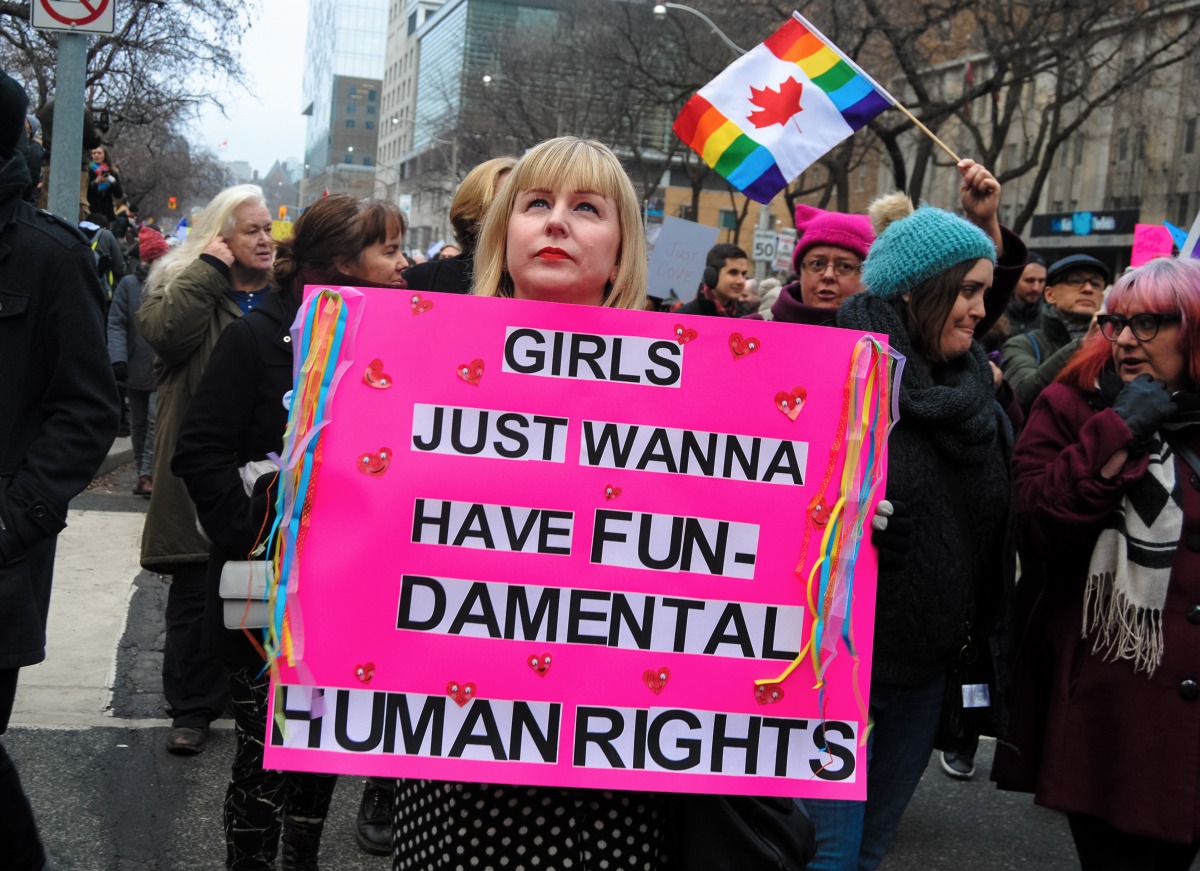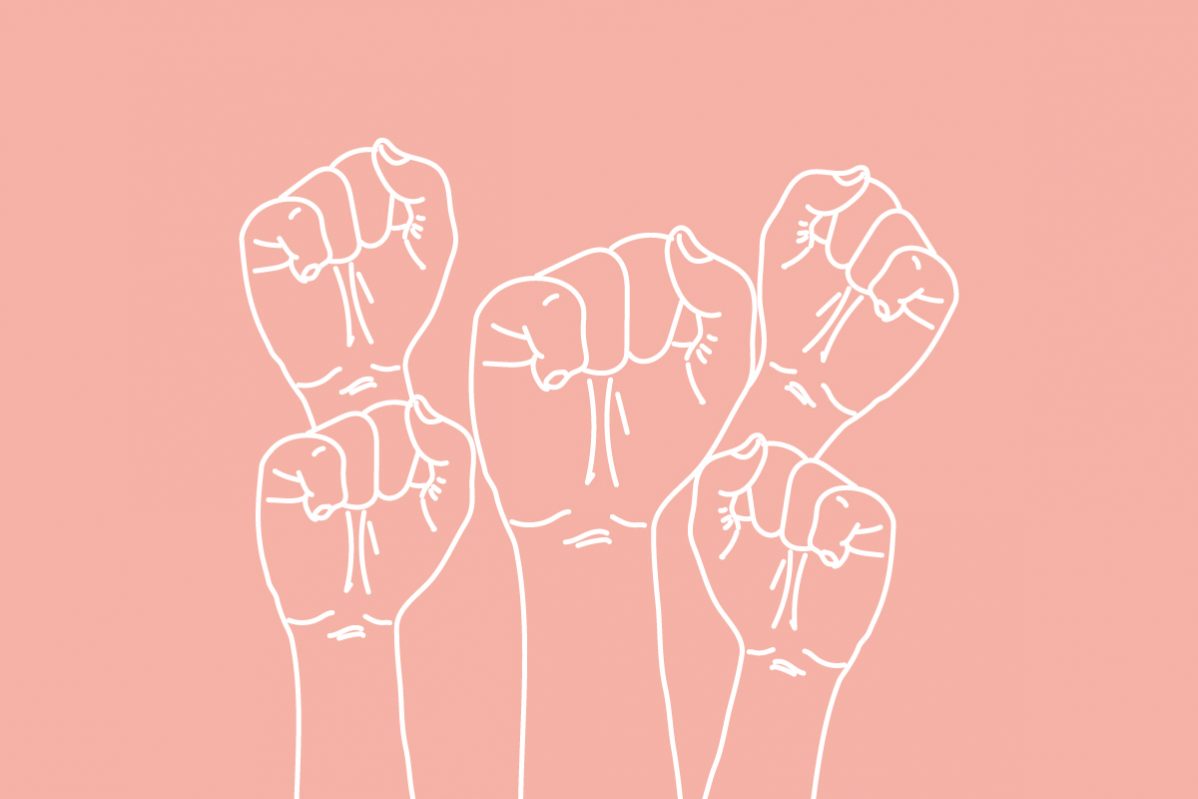A timeline of women fighting to live, love, vote and work.
International Women’s Day is a good time to reflect on women’s achievements. Looking back it’s undeniable that women have been able to accomplish many things that were unthinkable 200 years ago. It’s been a long path, but as gender inequality is a still a worrying reality, the fight for more changes continues to influence the 21st-century women’s fight.
| 19TH CENTURY | |
| 1853 | Mary Ann Shadd Cary becames the first Black women publisher in North America and the first women publisher in Canada when she founded The Provincial Freeman. |
| 1869 | Under the Indian Act, Indigenous women would lose their band status when marrying men outside their band or non-Indigenous men. The law was on the books until 1985. |
| 1879 | Dr. Emily Stowe, the second woman licensed in Canada to practice medicine after Jennie Trout, was charged and acquitted of performing an abortion. |
| 1882 | First major strike of women workers in Canada when around 250 shoemakers in Toronto went on strike against five factories demanding union recognition, a uniform bill of wages, and a wage advance. The strike lasted three weeks. |
| 1884 | In Ontario married women get same legal rights as men, allowing them to buy property and enter legal agreements. Manitoba followed in 1900, but not all women in Canada had these rights until 1964. |
| 20TH CENTURY | |
| 1911 | First International Women’s Day |
| The Triangle Shirtwaist Factory in New York City caught fire killing 146, mostly young immigrant women workers. | |
| 1916 | Women get the right to vote and stand for office in provincial elections in Manitoba, Saskatchewan, and Alberta. In 1917, British Columbia and Ontario follow suit. |
| 1918 | Federal Women’s Franchise Act gives all women who are British subjects aged 21 and over the right to vote in federal elections. |
| 1920 | Dominion Elections Act excludes British Columbia residents of Chinese, Japanese, and South Asian backgrounds of the right to vote federally. |
| 1921 | Agnes Macphail is the first woman elected to parliament. |
| 1940 | Quebec is a last province where women get the vote and can stand for provincial office. |
| 1946 | Viola Desmond, a Black woman from Nova Scotia is arrested for sitting in the whites only section of a theatre in New Glasgow. This year, she will be honoured on a new $10 bill. |
| 1948 | Japanese Canadians are extended the right to vote federally, removing the last statutory limitation on voting for Asian Canadians. |
| 1950 | Inuit women and men get the right to vote, but ballot boxes were not brought to communities in the Arctic until 1962. |
| 1960 | Inspired by activist Margaret Sanger, endocrinologist Gregory Goodwin Pincus starts working on the birth control pill in 1951. The pill is approved in 1960. |
| Indigenous women and men win the right to vote federally without losing their status. | |
| 1972 | Rosemary Brown is the first Black woman in Canada to win a seat in provincial legislature. She ran for the NDP in British Columbia. |
| 1985 | Bill C-31 amended the Indian Act, to fall in line with gender equality under the Canadian Charter of Rights and Freedoms. |
| 1988 | After decades of protest, the Supreme Court of Canada rules anti-abortion laws as unconstitutional, and abortion becomes legal. |
| 1993 | Kim Campbell becomes the first, and only, female Prime Minister of Canada. |
| 21ST CENTURY | |
| 2000 | Millennium Development Goals include a goal to promote gender equality. |
| 2005 | Same-sex marriage is legalized in Canada with the passing of the Civil Marriage Act. |
| 2008 | UN Security Council recognizes that sexual violence can be categorized as a war crime. |
| Canadian Prime Minister Stephen Harper offered an apology to all former students of residential schools. | |
| The Truth and Reconciliation Commission of Canada is created. | |
| 2009 | 13 per cent of all Indigenous women aged 15 and older living in the provinces reported that they had been violently victimized. |
| 2013 | RCMP report finds that from 1980 to 2012, a total of 1,017 Aboriginal women had been murdered, making up 16 per cent of the total for all women homicides in Canada. |
| 2015 | Stats Canada report shows that visible minority women are more educated, yet had a higher unemployment rate and earn less than non-visible minority women. |
| Doctors allowed to prescribe abortion pill, mifegymiso but it remains hard to obtain. | |
| After decades of pressure, the federal government announces an independent national inquiry to address missing and murdered Indigenous women, and girls, including two-spirited, lesbian, bisexual, transgendered and queer folk. | |
| 2017 | #MeToo and the Time’s Up movements help embolden women to come forward about sexual assault and harassment |
 Thousands attended the Women’s March in Toronto in 2017. Photo: Booledozer Thousands attended the Women’s March in Toronto in 2017. Photo: Booledozer |
|
| JAN. 2018 | Soulpepper artistic director Albert Schultz accused of harassment of a sexual nature. |
| MPP Patrick Brown, MP Kent Hehr, and former Nova Scotia PC leader Jamie Baillie are accused of inappropriate behaviour and sexual misconduct. | |
| Jan. 20, 2018 Millions take the streets around the world for the annual Women’s March. |
|


